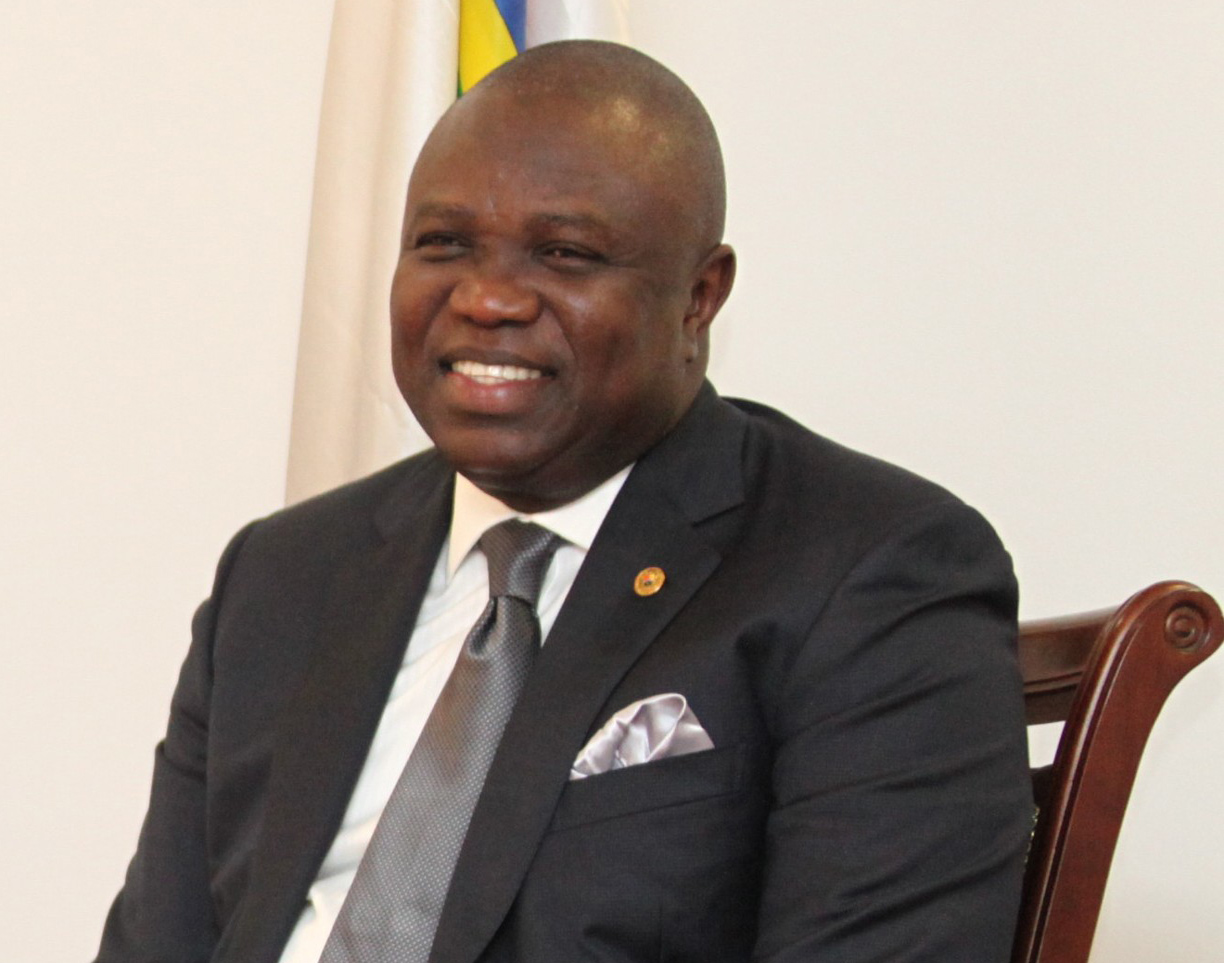The jury is still out on the status of the economic recession that hit the country very hard since 2015. The report on the news is that Nigeria has been in economic recession for five consecutive quarters now without relent. No one needs to be convinced again about the untold hardship that the recession implies for Nigerians in terms of the rising cost of living and the plummeting poverty figures. Employment spaces shrank terribly, and more Nigerian youths were thrown overboard into unemployment, brigandage and criminality.
The economic problems have also been compounded by rising security concerns having to do with the Boko Haram insurgency that has refused to go away in spite of concerted responses from the Nigerian government. Kidnapping has been on the increase, and the Fulani herders’ story has become a particularly unfavorable addition to the growing economic troubles of the Nigerian state.
There have been reports of a steady but slight improvement in GDP growth, but the statistics are way off any consideration of significant economic growth that could provide succour for Nigerians. Not surprisingly, the continued negative growth of the economy has been ascribed to the regular fluctuations in the dynamics of the oil sector. Nigeria, since the discovery of oil, has remained unhealthily monocultural, and therefore subjected to the various and varying troubles that have afflicted the global price of oil. Nigeria’s foreign reserves have dipped dangerous because of the steady drop in the international oil price. This has been aggravated by the threat posed by militancy in the Niger Delta, and the constant harassment of the oil wells that disrupts economic flows. In fact, the economic recession was essentially a function of Nigeria’s unhealthy dependence on commodity products like crude oil, and the implications of global fluctuations on these products as well as Nigeria’s low saving culture when there was an oil windfall. This is further aggravated by the infrastructural deterioration that has made Nigeria one of the worst places for doing business on the globe.
There is no doubt that attention has often been placed on the search for analternative sustainable and inclusive model of development that will enable serve as a growth strategy for national economic recovery. This is indeed the appropriate framework for Nigeria’s way out of its economic predicament. However, the problem with the various recommendations for such an economic recovery and growth strategy has always been that they conceive of the solution outside of the larger institutional dynamics and frameworks that gave rise to it in the first place.In other words, we cannot begin to address the economic recession and sundry economic predicament outside of the larger issues of infrastructure, financial and government revenue reforms that are required urgently to reconfigure the Nigerian state. Recovering the economy of Nigeria must derive from a large list of significant but connected reform matters that seeks to intervene in the economic predicament from different bur related dimensions. I outline seven of such crucial concerns here: a) Engendering economic diversification, job creation and inclusive growth; b) Conversion of government illiquid to liquid assets and reduction of budget deficit and debt servicing; c) Espousing a less fractious intergovernmental fiscal relationship and a more coordinated national development agenda; d) Re-imagining the role of oil resources in national development; e) The role of fiscal, monetary and exchange rate policies in the post-recession economy; and f) Maintenance of beneficial external relations and foreign policy.
Advertisement
What strings all these ideas and strategies into a unique reform dynamics that can rejuvenate and sustain Nigeria’s economic buoyancy is simply the availability of a critical attention to public service reform that will eventually strengthen the implementation capability of government institutions to implement policy recommendations and management. The public service as the institution with the responsibility for upholding the governance mandate of the Nigerian state presently lacks the capability readiness to pursue an efficient and effective policy execution that will translate into a democratic service delivery to Nigerians. Indeed, history seems to be repeating itself because we now seem to concentrate so much energy and resources on policy design and planning without equal attention directed at the implementation capability of government institutions and their reform.
The deadly consequence is that Nigeria daily witness a gradual but steady decline in its national productivity level in a way that undermines economic stability and performance. For instance, several government institutions have been eroded by an adversarial industrial relations logic that vitiate their productivity profile while sending a very wrong signal to investors about the productive value of the business environment. But the labour unions have a point. Payroll is not the only drain on cost of governance. We should unbundle the entire expenditure streams of government for efficiency savings overall, so government could come to equity with clean hands when downsizing and offloading ‘deadwoods’ and the redundants in the workforce. Thus, accelerating the growth in the economy will make no sense if the public service as the implementation hub is not reformed and adequately activated to serve as a critical backstop for transformative growth in the economy.
Nigeria’s national productivity dynamics stands at the very core of Nigeria’s economic recovery project. In other words, any recovery strategy must be targeted at rebooting the system in a manner that injects new life into government institutions. The national productivity paradigm therefore centers the institutional reform awareness that Nigeria urgently requires to become a viable global economic force. And the commencement of that reform is the paradigm shift in the national productivity profile. Unfortunately, this paradigm shift cannot be achieved successfully except Nigeria deals decisively with the execution trap that has bedeviled it since independence. This trap speaks to the inability to push policy through from design to implementation in a way that impacts governance. Development outcomes are more dependent on execution than visioning, strategic plan and all the big picture concerns at a ratio of 85/15 percent. To appreciate the critical essence of the gap between policy and outcome, our issue is a case of an administrative transformation that must of necessity be propelled by a bureaucracy with a jet engine, but is actually powered by the engine of a Beatle car. Since government’s governance effort will be measured in terms of what is achieved rather than what it undertakes, the issue of execution involves the balancing of doing the right thing with doing it right which is conditioned not just by the legendary Nigerian Factor but by the breakdown of institution as mix of structures and values.
Advertisement
Let us consider some instances that drive home the point that connects productivity to the capability readiness of the public service to deliver on goods and services. First, there is the recurrent issue of waste management and redundancy in the Nigerian economy, aligned with a national maintenance culture model. There is no doubt that the workforce of the public service in Nigeria is over-bloated. There are so many people doing so little and so little doing the significant work. For anyone that truly understands the challenges confronting the public service, especially the need to put in place a performance management system, it becomes immediately obvious why there must first be a redundancy management framework that will make it possible for the injection of new talents in the wake of the downsizing of the institution. The overall vision, however, is better resource allocation and utilization efficiency through national assets optimization and performance with increased quantum of composite value added as local content and efficient maintenance system. A robust master data of national assets and their regular profiling along lines of cascaded maintenance schedule that is a component of scorecards for top public managers is imperative. It does mean that assets maintenance would be a significant proportion of the top management KPIs. It would however help if there is a vigorously enforced national policy and quality control benchmarks for budget allocation that reflects national assets status and maintenance audit reports. A centrally coordinated dashboard managed with the involvement of NGOs and professional bodies would need to be developed to report on KPIs around national assets maintenance and performance across sectors of the economy.
On the other hand, there is equally the corollary urgent need to block revenue leakages arising from government agencies’ involvement in capital projects. One fiscal consequence of this is that their involvement reduces the revenue accruing to the federal government at the end of each fiscal year. However, if government ensures the transfer of capital projects away from its agencies, this will have the advantage of increasing the revenues that each agency is able to remit.
Making the public service functional and achieving a paradigm shift in Nigeria’s productivity profile are necessarily part of a larger governance reform project that consolidates the public service reform by providing other institutional reforms—electoral reforms, anti-corruption reforms, security reforms, infrastructural reform, and so on—that facilitate the efficiency of service delivery to the people. The reform of the anti-corruption mechanism is particularly urgent in this governance context because corruption, by its very nature, is anti-developmental. In fact, the efforts geared towards taking the civil service to the next level cannot in any way be divorced from combating corruption, either political or bureaucratic. In the first place, political corruption makes it possible that significant reforms do not even take off because those who have the capacity to give it political backing are already hamstrung by powerful interests. On the other hand, bureaucratic corruption is defined by the replacement of the virtue of deferred gratification in the name of service by the culture of immediacy. The instant effect is that the civil service not only lost its reputation as a noble and spiritual vocation, but there crept into the system the unbridled desire to undermine it processes, procedures and ethos in the bid to satisfy selfish desires. And so, the very people who ought to be at the forefront of reforming the system became the worst opposition to it. The first order of business of the anti-corruption reform is to strengthen the structure and processes of service delivery in the public service by transforming the transparency and accountability components of all reform management and implementation. The anti-corruption campaign isto be backed up by effective anti-corruption agencies, and educationemphasizing the importance of ethical conduct and integrity.The anti-corruption reform therefore ties all the other governance reform into an effective framework of development and a developmental state in Nigeria.
In the final analysis, one of the direct consequences of the reform of the governance and administrative structures and institutions of the Nigerian state should be the adequate diversification of the Nigerian economy away from its unhealthy dependence on the oil sector. Economic diversification only speaks to a state’s creative capacity to read the time and adjust its development strategies accordingly. For instance, beyond commodity products, global economies are now adjusting to the implications of the emerging knowledge society. A proactive diversification scheme becomes a foregone conclusion when the public service has achieved the required capacity readiness to deliver on the mandate of democratic governance that will enable the Nigerian state cultivate other economic possibilities that can complement oil.
Advertisement
Dr. Olaopa is executive vice chairman of Ibadan School of Government and Public Policy (ISGPP), Ibadan.
e: [email protected], [email protected]
Views expressed by contributors are strictly personal and not of TheCable.
Add a comment







